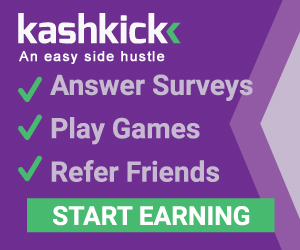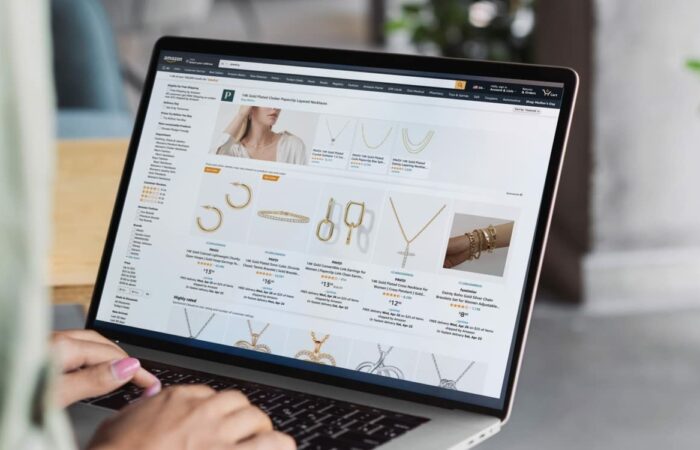Editor’s Note: Overdraft Apps provides detailed product reviews and recommendations based upon extensive research and our own hands-on testing. We may earn a referral fee when you sign up for or purchase products mentioned in this article.
We have all (ok, most of us) been there! You miscalculated your expenses? Your paycheck is a bit lower this time around than usual? In this article, you will find concrete tips to prevent having an overdrawn bank account, and learn what to do when you bank account has a negative balance. Overdrafting is very convenient (you just swipe your card and use money that is not yours), but extremely expensive. An average overdraft fee costs $35 per transaction, and it can add up very quickly! We are not even talking about the extra fees that your bank might charge you if you’re staying too much time in negative. Some banks might even close your bank account and report you to ChexSystems (a consumer reporting agency), preventing you from opening a new bank account.
What does overdrawn mean
The definition of overdrawn is quite straightforward: it means that your checking account balance is negative. You used more money than you actually had. This will happen when you opt-in for overdraft protection at your bank. The bank will allow you to spend a few extra hundred dollars (the exact amount depends on your bank and your bank history).
You might think that it’s nice from your bank to offer this service. Unexpected expenses are common and nobody wants to be stuck at the end of the month without food, or be refused a transaction when you’re in a shop and you really need something. Well, thank you, banks! They give you money and don’t forget to charge you ridiculous fees for this service. The story is not over- they can charge you these fees multiple times per day, depending on the number of transactions you make when you are in negative.
What happens if you overdraw your checking account
The bank will charge you an overdraft or NSF (non-sufficient fee). An overdraft occurs when you buy (or are charged for) something, but don’t have enough money in your bank account. The average overdraft fee in the U.S. nowadays is $35 per transaction. In that case, you pay for your item (and go home with it) and you pay the fee.
On the other hand, a non-sufficient fee occurs usually with bounced checks. You write a check but don’t have enough money in your checking account. The check bounces (you don’t get the item you were trying to purchase) AND you are charge a NSF, usually $35 as well. NSF is great business for the banks – they don’t give you money and still charge you.
Can you withdraw from a negative account
Yes, you can! If you activate overdraft protection at your bank, you will be able to withdraw or use your debit card even when your bank account is negative. You can’t spend endlessly of course. Usually, the banks will allow you to use up to a few hundred dollars (maybe up to $1,000). Banks charge you these fee per transaction! For example, you used your card 3 times when in negative, you will pay $35*3 = $105 in overdraft fees! So you better do one large transaction (and be charged an overdraft fee once) than multiple small ones. If you are asking yourself how much can I overdraft my checking account, the answer will not please you since banks can charge you these fees up to 6 times per day, depending on your bank.
Avoid overdrafts
The best way to prevent the problem is to monitor your bank account. Chances are that your bank has an app you can download and that will let you monitor your account quite intuitively. Some guidelines: just be aware of your paychecks (are you getting paid bi-weekly or monthly?), and of your recurring expenses such as Netflix, Spotify, Gym subscriptions, Insurances, Utilities, etc… Those are inevitable (can’t do without Netflix, really) and expected. You will get a sense of how much money you can spend without having to pay your banks’ outrageous fees.
My bank account is overdrawn and I have no money
See What You Qualify For - Compare Loan Offers in Minutes
We've partnered with Fiona to provide instant comparison quotes from leading personal loan providers, including Lending Club, PenFed, Prosper, SoFi, Upgrade, Upstart, and more!
See what you qualify for in just minutes, with no obligation and no impact to your credit score.
Ok, don’t panic! Maybe you just quit your job or you just had a large unexpected expense.
Here is what you should do:
- Try to freeze your recurring not essential expenses (Netflix, Gym,…). These can add up to $100 a month easily.
- Stop using your checking account and debit card. Whenever you get enough cash to bring your account back to positive, do it, but in the meanwhile, try to live with cash. Cash your next check for example (instead of putting it in the bank).
- Call your bank, or even show up at the local branch if you can. Understand exactly how much this overdraft situation costs you and explain why do you need a grace period. If you’re not a terrible client, chances are the bank will be thoughtful.
As long as keeping your account overdrawn doesn’t cost (much) money, you can probably stay in negative for a few weeks, just the time you need to figure out how to go back to a positive cycle.
Talk to your bank
By speaking with your banker, you can not only try get your overdraft fees waived, but also explain and figure out solutions for your problem. We know; you’d probably rather speak with the devil than your bank, but “investing” 1 hour in the process can be very useful and could potentially save you a lot of money and trouble. Best case scenario, you get an overdraft fee waived and you figure out a convenient installment payments to go back to positive; worst case scenario, your banker understands your situation a bit better.
Here is a recap of what you should do:
- Be quick to react! Don’t wait two weeks, act the same day if you can. It will also show how much you care about it.
- Call them up or show up at the branch. Showing up could be especially powerful since the workers will be pressured to resolve your issue since other clients are probably waiting.
- Don’t be rude, always be polite! The bank doesn’t have to waive the fees, but they can.
- Social media leverage – a lot of organizations today are very sensitive to what people write about them on social media. A Facebook or Twitter post can go a long way.
- Get to the decision makers. Try to speak directly with the branch’s manager and not the 19 year-old intern that doesn’t care or doesn’t have any power.
- It is in your bank interest to keep you as a client. They think that one day, you will get a mortgage from them or that your kids will also choose their bank. Leverage this as much as you can.
How long can my bank account be negative
This is a great question that can’t be easily answered. It really depends on your bank. As a rule of thumb, if your bank account is negative for more than 30 days you’ll face an escalating list of problems.
During that period when you have an overdrawn bank account, your bank can charge you more fees and interest. For example, some banks will charge you extra fees if you’re negative for more than 7 days. When we say “charge you”, we mean that it will add up to the amount of what you owe. After that period, the bank will threaten to close your checking account, and will eventually do if you don’t pay it back after ~60 days (depending on your bank).
What happens if you overdraft your bank account and don’t pay it back
Like mentioned, if you don’t pay it back after the defined period (or it could even happen quicker if your bank think that you are lost case), the bank will just close your account.
It is not in your bank’s interest to close your account as your balance will be considered as a loss. And it is not in your interest to have your account closed because your bank will report you to consumer data services such as ChexSystems and you will be black-listed! It will be tough for you to open a bank account in a different bank and you might find yourself out of the financial system.
We hope you will never get there as living without a bank account is not convenient and shouldn’t happen for anyone living in a developed country in the 21st century. If you do happen to be kicked out of the system (or even if you’re not but are looking for alternative solutions), you can start using different kind of pre-paid cards like Go2Bank (some offer direct deposits).
Overdraft protection apps
In any case, you should know that some overdraft apps such as apps like Dave or apps like Earnin can provide you with low-cost cash advances for a few days or weeks. It is expected from you, of course, to repay these advances whenever you can afford it. Other solutions if you need cash now, is to go to payday lenders although we don’t recommend most of them (the ones we do review in this website are fine).
Again, the best solution to avoid an overdrawn bank account is to monitor it at all time, reduce/ freeze recurring not essential expenses and manage your cash flow
WAIT! Why borrow quick cash when you can earn it?!
Cash advance apps can be a great tool for getting a little extra cash when you need it, but you’ll need to repay it – plus fees – wihtin a week or two. Did you know there’s an easy way to earn extra cash that’s yours to keep?

KashKick is a wildly popular service that lets you earn money for playing games, completing surveys, signing up for trial offers and more. (You’ll even earn cash for just completing your profile!) You can earn cash today and withdraw your earnings through PayPal once you’ve reached $10. You can earn over $100/month with KashKick – and you don’t need to spend a dime or take out your credit card to do it.
There are dozens of high-paying offers available on KashKick, and if you’re into playing new games on your phone, you can earn some serious cash for doing what you love. Though offers change regularly, there are currently1 more than three dozen offers available where you can earn cash – sometimes over $100 – just by downloading and playing popular games like Coin Master, Monoply Go, Bingo Blitz, and more. These games are all free to download, and no in-app purchases are required to earn with KashKick.
Get paid to play on your phone >>> Check out KashKick
- FloatMe Review – Simple $50 Cash Advances with Low Fees - April 17, 2024
- MoneyLion App Review: Save, Invest & Borrow up to $1,000 in One Simple App - April 15, 2024
- Brigit App Review – Fast $250 Cash Advances with No Interest or Late Fees - April 10, 2024
- As of February 13, 2024. Offers may change and may not be available to all users. Eligibity requirements apply. See KashKick's Terms of Service for full details.



